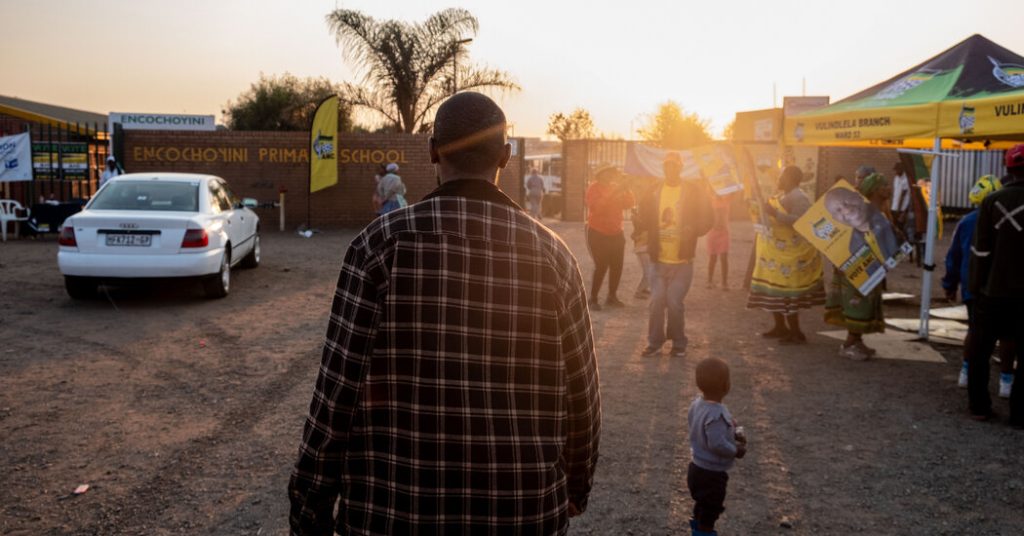The article delves into the recent election in South Africa which saw the African National Congress (A.N.C.) lose its parliamentary majority, reflecting the disappointment and disillusionment of voters like Beauty Mzingeli who feel let down by the unfulfilled promises of the ruling party. The transition from apartheid to democracy, which was once seen as a beacon of hope, now faces challenges such as economic stagnation, high unemployment rates, political corruption, crumbling infrastructure, and widening inequality. The A.N.C. is now facing the possibility of forming a coalition government for the first time, indicating a significant shift in South African politics.
The article also highlights the changing dynamics within the political landscape of South Africa, with the emergence of new parties and the fragmentation of the opposition. The Economic Freedom Fighters, led by Julius Malema, have gained momentum with their populist left-wing agenda, while former President Jacob Zuma’s new party, uMkhonto weSizwe, represents a more conservative approach. The Democratic Alliance, the main opposition party, continues to struggle due to its association with white wealth and laissez-faire capitalism. The results of the recent election reflect a shift in the political landscape, with smaller parties gaining ground and potentially influencing the future governance of South Africa.
Despite the challenges and uncertainties facing the country, there is still a sense of optimism and determination among activists and political figures who are committed to enacting change from within the system. Independent candidates like Zackie Achmat and new parties like Rise Mzansi are advocating for transparency, accountability, and social democracy as a way forward. The diverse and vibrant civil society in South Africa continues to push for justice and equality, both domestically and internationally, as seen in the country’s stance on the Israeli-Palestinian conflict.
The article draws parallels between South Africa’s transition from apartheid and the ongoing struggles for justice and liberation in Israel and Palestine. It emphasizes the importance of grassroots movements and mass struggle in effecting meaningful change, as exemplified by South Africa’s history of resistance against apartheid. The idea of mutual surrender of entrenched identities and collective imagination as a means of building a new society is highlighted as a transformative force that can inspire change in other contexts.
Ultimately, the article underscores the ongoing nature of South Africa’s journey towards genuine multiracial democracy and self-determination. The country’s complex history and diverse society serve as a map for navigating the challenges and opportunities of the present moment. The article concludes by highlighting the need for continuous compromise, negotiation, and commitment to building a truly inclusive and equitable society. Like Nelson Mandela, South Africa as a nation embodies the struggle between imperfection and progress, embracing the ongoing process of change and growth.


